01: The fate of tax incentives for the energy transition
An exploration of Trump’s policy agenda and the hurdles it may face

“The First 100 Days” is a podcast that explores the legal, regulatory and policy implications that the new US administration may have on global businesses across industries. Hosted by Executive Committee member Eric Leicht, the series features our lawyers’ views on the topics that matter most to our clients.
An exploration of Trump’s policy agenda and the hurdles it may face
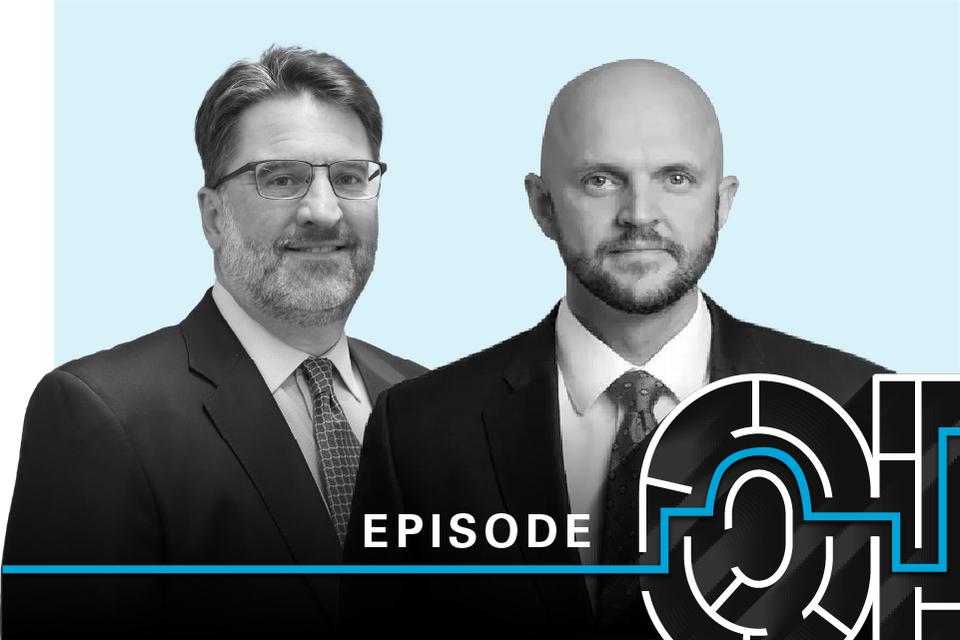
Will tariffs help rewrite the rules of international trade?
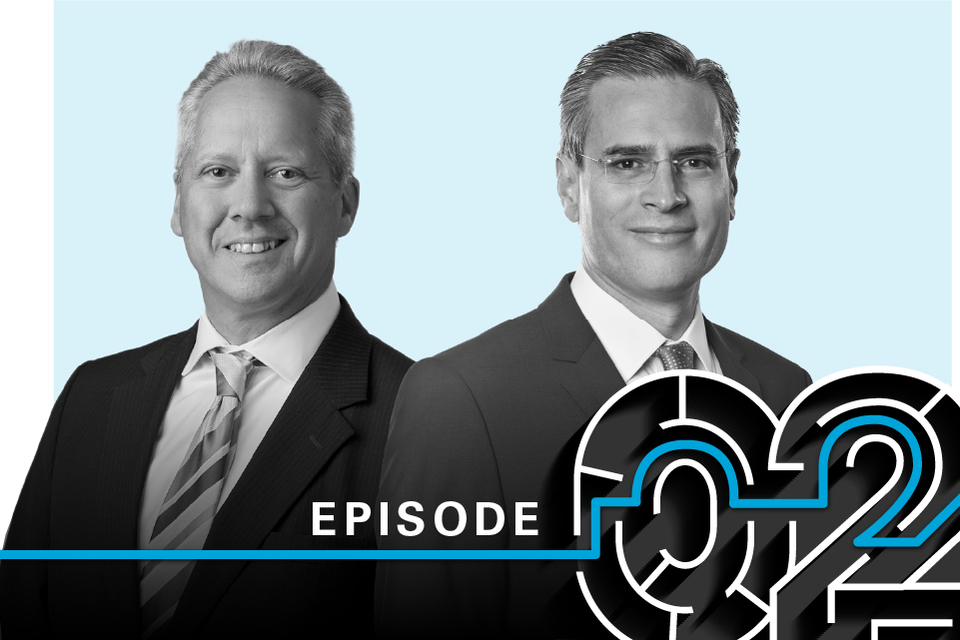
Speed bumps on the road to a lower carbon future

Economic tools advance US foreign policy and national security goals

How “America First” policies may impact mineral and hydrocarbon supply chains

Some, but not all, investors may face a friendlier climate
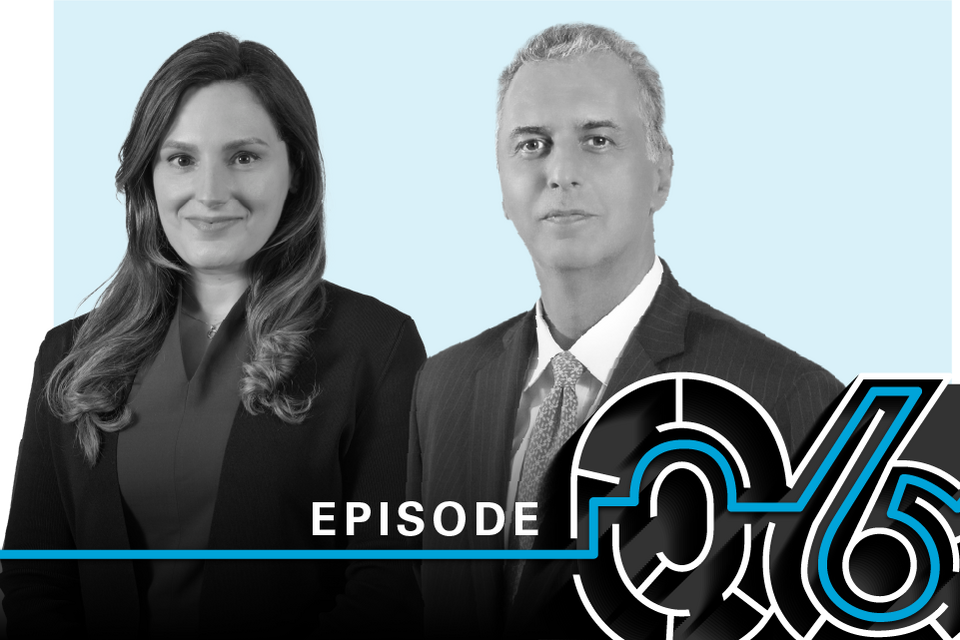
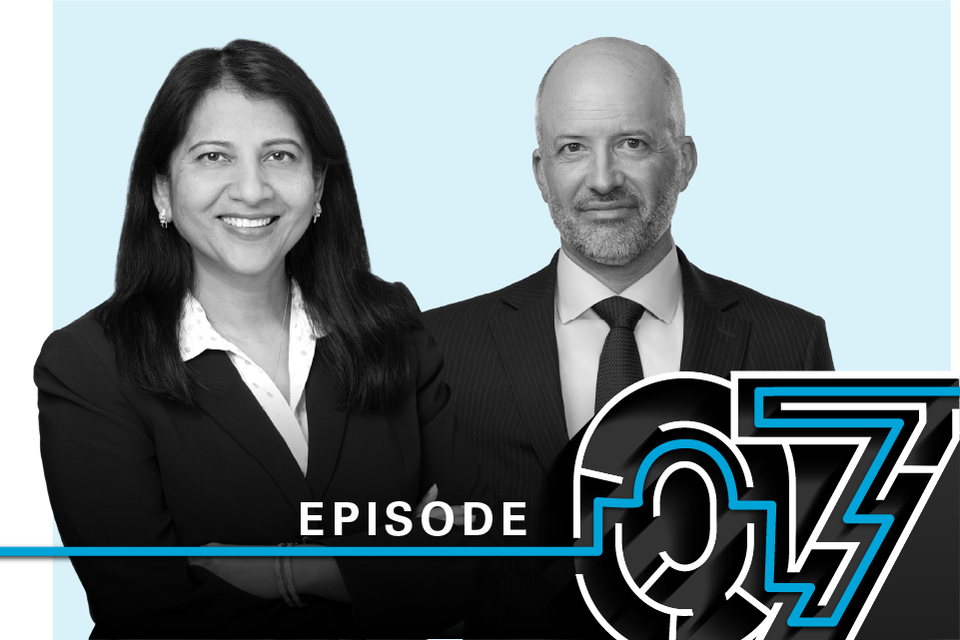
Managing the legal impacts of a new US administration
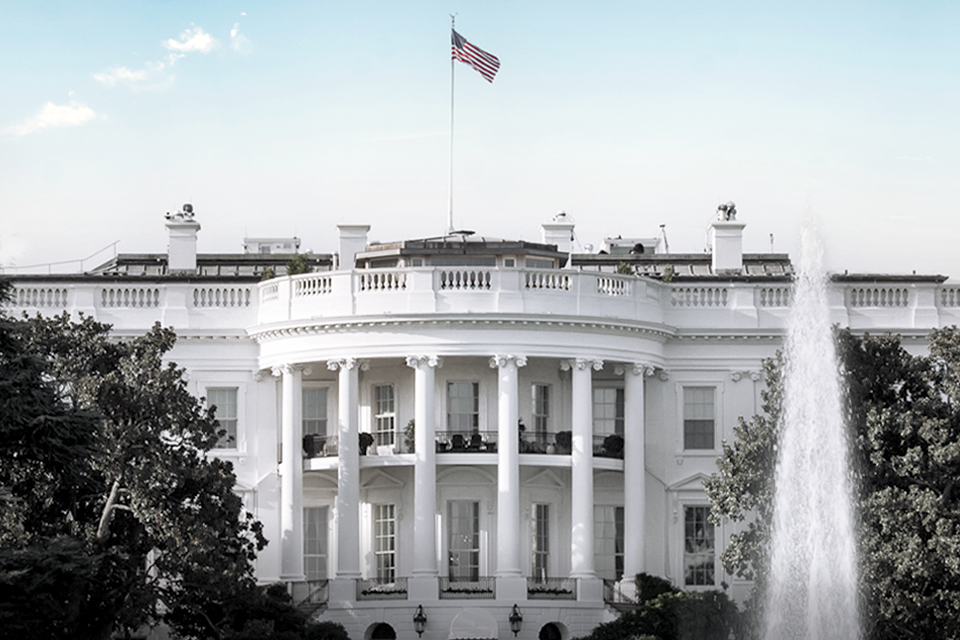

Economic tools advance US foreign policy and national security goals
Listen and subscribe
In this episode, trade partners Cristina Brayton-Lewis and David Lim discuss the Trump administration's expected actions on economic sanctions and export controls. Cristina practices export control and economic sanctions law, with a focus on technology. David, who previously held multiple roles at the Department of Justice, represents clients in economic sanctions, export controls and national security matters. Topics covered in this episode include: targeted sectors, the administration's views on Iran and China and the sanctions on Russia.
Listen now
Listen and subscribe Apple Podcasts | Spotify | YouTube Music | Amazon Music
Eric Hello, and welcome to The First 100 Days, a podcast from White & Case that features our lawyers' views on the likely regulatory, legal and policy implications of the new administration on businesses operating across the globe and in various industries. I'm Eric Leicht, a member of the Firm's Executive Committee and a partner in our Debt Finance practice. Today I'm joined by Cristina Brayton-Lewis and David Lim. Cristina, David, can you give us a quick overview of your practices? Cristina Thank you, Eric. My name's Cristina Brayton-Lewis, and I have been with White & Case now for almost 15 years, where I have focused exclusively on export controls and economic sanctions, particularly in the technology space and relating to technology issues such as AI, semiconductors, quantum computing and crypto, among other areas. My practice here includes advisory work, preparation of compliance programs, transactional support, licensing and investigations. David I'm a partner in the Firm's International Trade group and also sit in Washington, DC. Prior to joining our Firm, I served as a prosecutor for over a decade at both the state and the federal levels. And in my last several years at the US Department of Justice, I helped to create and ultimately led a government-wide task force devoted to enforcing Russia sanctions and export controls. And here at White & Case, I concentrate on advising clients in complex cross-border investigations and regulatory issues, including representing clients in both civil and criminal enforcement proceedings before US agencies including the Department of Justice, OFAC and the Commerce Department. Eric I'm going to start with a very basic question. We recently did an episode on tariffs. Like tariffs, export controls and sanctions affect international trade. But they're different tools. Could you explain the differences between tariffs, export controls and sanctions? Cristina As you mentioned, tariffs, export controls and sanctions all draw upon economic tools to carry out US foreign policy and national security goals, though they operate in very different ways. In the case of tariffs, the US has generally focused on targeting the import of goods into the United States through duties and taxes that are applied to the goods when imported into the United States. In contrast, export controls are focused on commodities, software and technology generally leaving the United States and going to another country. This increasingly has also applied to products made outside of the United States that use US software, technology or tools in the production process, and the restrictions are generally based on prohibitions and licensing requirements rather than duties or taxes that need to be paid on the items. And the restrictions are based generally on the destination, the use of the items and the user of the items. The way I would look at it is this: You have an apple pie, and it's made outside the United States. And you source some of those apples from the United States. And so, you've got your pie. It could be subject to US controls because it contains the apples. That's one way, that's a normal way, that the US would assert jurisdiction. But there's another way that has been significantly expanded in recent years—the foreign direct product rule. What does that mean? It means you've got an apple pie. You're making it outside the United States. There are no US apples. There're no US ingredients. But you either use your aunt's recipe from the United States or maybe you ordered your oven from the United States and use that to bake the pie. Even though the pie doesn't have anything in it from the United States, the fact that you used a US recipe or a US oven means we've got US jurisdiction, and the US can impose restrictions on where that pie goes. Sanctions frequently overlap with export controls, but they're more focused on transactions or activities rather than the item. Sanctions tend to follow the so-called US nexus. For example, a US-dollar denominated transaction would generally clear through the US financial system, and that would trigger the application of US sanctions. Eric Christina, can you give me some examples of types of goods and technologies that are currently being targeted? Cristina A key item or technology that is being targeted, particularly by US export controls, are advanced semiconductor integrated circuits or chips. These are really critical to the global economy at the moment because they are the engine that powers AI development. These chips are critical for use in data centers worldwide in order to expand AI applications. That is a key area that the US has worked over the years to restrict. Other areas that have been subject to US sanctions and export control restrictions, in the past and likely going forward, have included things like the energy sector, where there are restrictions on what transactions people can undertake involving Russian origin or Iranian origin oil. Eric And under the new administration, what countries are the most likely targets? And why? Cristina The Trump administration has clearly expressed that intent to impose so-called "maximum pressure" on Iran. That is a continuation of the maximum pressure policy it enacted during the first Trump administration, signaling an intent to strongly impose and enforce sanctions on Iran. In addition, there are signals that the Trump administration intends to take a very aggressive and tough stance on China. David Right now, the topic du jour is advanced semiconductors, and it'll always be the banking system that we have here. And this administration, just like those before, will leverage these goods that the rest of the world wants to achieve their goals. Eric I pick up the paper, and every day I'm reading about AI and data centers. In January, during the last days of the Biden administration, the Department of Commerce announced export controls with broad implications for the global AI and data center industry. What do these controls provide for? Cristina Okay, so this new rule on AI diffusion, as they call it, primarily does two things. First, it restricts the export of advanced chips that are used in these data centers worldwide, where previously they only targeted these restrictions on certain countries and to certain parties. Second, it imposes new restrictions on model weights. And this is data that's used for AI systems to essentially make these AI connections to understand how data relates to other bits of data and generate the responses that we see on the other end. Regarding how they're deploying this, the US government has basically split the world into three categories. The first category, Tier 1 countries, includes the US and 18 allies. These countries have much easier access to the chips and model weights. They've got license exceptions they can use with very limited restrictions on how they can use them. In contrast, on the other side of the spectrum, you've got the restricted countries. That's China, countries subject to an arms embargo, and they're essentially prohibited from getting these chips or model weights. In the middle you've got Tier 2 countries. That's everybody who is not Tier 1 or restricted. They've got some license exceptions and the ability to get licenses, but they're subject to a number of restrictions, including quotas that may limit their ability to get these. Eric How do you know, if you have a license to, say, one of the Tier 2 countries, that that Tier 2 country's not going to somehow pass through this restricted information to one of the restricted countries? Cristina There are two ways to get a license right now. One is a standard licensing path where you go and you apply to the US Department of Commerce for a license for a particular export or transaction. And the government, if they agree, will issue you an export license with requirements on how you use that, and these requirements may be extensive. There is also, under this new rule, the so-called Validated End-User program. In that program, the US government created a pre-approval process to facilitate licensing for parties looking to obtain chips at a larger volume on a more regular basis with some predictability. Eric What concerns do your clients have with these new rules, in terms of implementation, compliance? I've heard the complexity here and the questions must be unending. Cristina You're entirely correct. And I'll say that, for the sake of clients, there's good news in that, for this new rule, if there's a license exception you can use now that you couldn't use before, it's effective now. But if it's going to make your life more difficult—something is controlled now that didn't used to be controlled for you—that part of the rule doesn't take effect until May 15th. So, there's still some time, and the Trump administration could react and amend it. But this is a significant issue, not just from the compliance complexity side. To put a finer point on it, one condition that we see in how these chips are deployed abroad is the requirement that your data center meet the specifications of a SCIF, which is a sensitive, compartmentalized information facility, which is the facility the US government uses to house classified data. These are really strict requirements. They're hard to comply with. But it's also a huge problem in the front-end investment standpoint. You don't want to get halfway through your investment planning, setting things up, contracting for construction of a data center, only to find out that there is no world in which you get the chips that you need to actually operate the data center. So, a lot of business planning goes into this. And it's significant, because we're talking billions and billions of dollars of investments are being made into these data centers, into AI technology, that could be at stake if companies don't fully understand what the limitations are on what they can do. Eric So, what can companies do to prepare to comply? It seems like there's still so much uncertainty if you're going to make an investment in the near future. Cristina That's right. What you have to do is take what is currently in effect and, if and until the Trump administration changes anything, that's the landscape we're working with. So, you need to work with your companies and say, "Let's take a look at the rules and figure out, is this something that could qualify for a license exception that would facilitate the process? Or is this something where you're going to need a license, and it would behoove you to go in early and try to figure out how to get this with the conditions most favorable to your investment?" Eric So, let's shift over to David. We've talked about AI and data centers. Has the new administration made statements or taken action regarding other industry sectors? David I think one of the challenges that we have here, Eric, is certain key officials that would be leading the charge for some of these enforcement measures have yet to be nominated or confirmed. But there's no doubt in my mind that AI and all the components and all the services that are surrounding that are certainly going to be the most dominant area of export control enforcement. Eric And what about energy and technologies that tie into energy? Cristina When you look at what gets targeted, from a policy standpoint, it has to be something where there's actually going to be an effect. And what are the key industries in the world? The US is pretty much the major banking player, and so we use our leverage on the banking system to try to enforce our policies by limiting use of our banking system. But what else can we do in terms of our targets? The energy sector is the major economic industry for a lot of our sanctions and export control targets. So, if you are looking to inflict economic pain, targeting the energy sector in most countries that are the subject of these restrictions, that's a good way to do it. Energy security is national security. But there're other issues that play into it. For example, the critical minerals that go into our everyday products that cannot be sourced from every country. That is an area where we may see interesting restrictions, interesting deals being made, to try to find out how we can secure our minerals and how to limit other countries from getting what they need. Eric After Pam Bondi was sworn in as US attorney general, she took actions that included disbanding the Corporate Enforcement Unit and dissolving the KleptoCapture task force, which David, as I understand, you recently co-directed. What do these actions mean for your clients and practice? David There is almost a temptation when you read these changes to fall into this trap into thinking that this administration will not care about corporate enforcement. And nothing could be further from the truth. For several reasons, companies should not interpret these drastic changes as a reason to let their guard down, and especially when it comes to compliance with sanctions and export controls because they play such an integral part in a day-to-day operations and the well-being of these corporate actors. So, we've seen some clear indications, maybe not necessarily within the Department of Justice, but certainly across the administration, that sanctions and export controls are going to continue to be a priority in this administration's ability to advance its agenda. The president's been quite clear about these as tools that are central towards his mission of maximum campaign against Iran, as well as the transnational criminal organizations and cartels. For example, the president issued on February 4th something called a national security presidential memorandum. It's a directive that outlines specific priorities in the realm of national security. But what's notable, when you look at that document, is there's a special shout-out for the Commerce Department and their role in using all tools available to ensure that these technologies and goods that we've been talking about don't get into the wrong hands, particularly the ones that the administration has identified as being malign. The task force mandate was really to work across all the government in order to find the right players, the right tools, who are going to help enforce these rules. And even though the task force no longer exists, that mentality of we are stronger when we work together, silos are ineffective, that playbook is going to continue, especially in this mission of seeking out the total elimination of transnational criminal organization and drug cartels. Eric Well, I can certainly see the continued relevance of these rules, you know, as we enter into the years ahead. I want to pivot a bit to some of the countries that are likely in the Trump administration's sight, including Russia, Iran and China. Given some of Trump's comments and actions with respect to Russia and Putin, do you see him taking a different approach to Russia? David Unfortunately, this is going to be one of those things where time only tells. One thing that is very clear, where there may be some collateral consequences, Eric, for companies, especially the multinational ones, is the difference between a multilateral and a unilateral approach. It's not only the US government that deployed a lot of different sanctions and export controls against Russia since 2022. The Europeans have stepped up in a significant way, to the point where now every member state has to make sanctions evasion a criminal offense. One possibility is that, if the US were to relax its sanctions against Russia as part of whatever deal was struck regarding the Ukraine war, there are still those very real sanctions in Europe that companies operating on that continent need to think about. And now you've got a conflict of law issue. Which one are you adhering to? Are you more scared of the United States or are you more scared of your European regulators? Cristina As Trump has stated, he is very interested in making a deal that would resolve the Russia-Ukraine conflict. What we've also seen is he's been willing to use these economic tools, things like tariffs or sanctions and export controls, as leverage in making a deal. It could mean reducing the controls that apply in an effort to bring Russia and Ukraine to the negotiating table. Eric So, I would have thought that the restrictions we had put on Russia were already so extreme that there really wasn't much more that you could bring to bear. So, what can we do? Cristina For context, the US has a number of different types of sanctions regimes. And they range from things that are list-based, where you're going after specific parties that are identified on a sanctions list, to so-called comprehensive sanctions, where you've basically said everything with respect to a certain country or region is off limits. Technically speaking, Russia stopped short of full comprehensive sanctions. They have gone through and identified a number of expansive restrictions on energy, on banking, on investment, on IT, on software. But they have not yet technically restricted all activity involving Russia. You can still make sales of a number of items into Russia in a way that complies with sanctions and export controls. So, they actually still do have room to maneuver. And whether they do so, again, may depend on how successful they are in achieving the deal Trump really wants to see, which is a resolution to the Russia-Ukraine conflict. David I think the biggest levers that are still on the table is Russian oil. And part of the strategy in leaving that on the table has always been, if we do an all-out ban in the way of a comprehensive sanction, as Cristina pointed out, there's nothing left but military action. So, you leave the area that would hurt Russia the most, the oil sector, on the table and take it in layers. Cristina Also, I should add in, in addition to oil, there's still some room to maneuver on Russian gas. Our allies are heavily dependent on Russian oil and gas. And to cut that off completely could jeopardize their economies. Eric Thanks, Christina. So, I want to shift now to Iran. We've heard a lot from Trump about Iran. And he recently, I think it was around February 4th, issued a national security presidential memorandum outlining an intention to impose maximum economic and political pressure on Iran. First, what is this NSPM, and what's its significance? David Yeah, Eric, NSPMs are presidential directives that promulgate the president's decisions on national security matters. The Iran one that you point to is NSPM-2, the maximum pressure campaign. This is a classic example of how the US government deploys enforcement of sanctions. It is to not only target the intended end person, but also to go after and cut off the intermediaries who have the requisite skill set to facilitate these transactions and continue to provide governments like Iran access to western goods, western services. Eric It seems no question to me that Trump is emboldened by the success of Israel against Iran and its proxies. Can you explain how Trump's approach to Iran is likely to differ from Biden's going forward? Cristina Thanks, Eric. So, for that question, I actually want to go a bit farther back. Going back a few administrations to the Obama administration, there was a program that the United States entered into in connection with its allies called the Joint Comprehensive Plan of Action, or JCPoA. And the idea behind this agreement is that certain sanctions would be reduced and alleviated in exchange for certain nuclear commitments from Iran. It didn't completely lift the sanctions. However, during the first Trump administration, we saw the first iteration of this Iran maximum pressure policy when they quote "snapped back" to the prior stance on Iran regarding very, very broad, very comprehensive Iran sanctions, lifted the limited waivers that had been given under the JCPoA. During the Biden administration, we didn't see a return to the JCPoA. In fact, if anything, we saw increasing restrictions on Iran for a variety of different reasons, whether it was Iran's perceived support of Russia or perceived support of, for example, other terrorist elements operating in the Middle East. So, the current Trump administration's return to so-called maximum pressure isn't starting from the same place it did originally, where there had been a relaxation of sanctions and now, they were being fully snapped back. Instead, they're starting from a place where, frankly, the sanctions are already pretty broad, pretty comprehensive. That doesn't mean, as we said, that there's nowhere to go, and there's something in particular in the NSPM I wanted to highlight because I think it's interesting. The NSPM includes language directing the government to immediately impose sanctions or appropriate enforcement remedies on all persons for which the department has evidence of activity in violation of one or more Iran sanctions. It's not like Iran sanctions weren't enforced under the Biden administration, but by directing the government to impose sanctions or enforcement on all persons for which there is evidence of activity in violation, suggests a far more aggressive enforcement posture going forward. David One thing that I would add. When you go back to the first administration, Trump was very clear about utilizing all the criminal and civil tools that he had at his disposal, which is why you saw a significant amount of Iranian entities being added to the restricted list. What you also saw was a robust use by the Department of Justice to leverage civil asset forfeiture authorities to go after Iranian oil. And when we think about which type of industry is probably going to be caught in the crosshair, it really is that maritime oil and energy sector, because we saw that as being an aggressive area of enforcement during the first administration. You see that as a particular mandate in the NSPM-2, where President Trump made clear one of his goals is to ensure that there is zero export of Iranian oil. So, if you're a company providing these services in the shipping industry, you want to take due care in ensuring that the third parties that you are interacting with are, in fact, who they represent themselves to be, that the origin of the oil that you are transporting are, in fact, what you expect it to be, because the Department of Justice has made it very clear they are not shy about using these tools, and these tools, especially as it relates to civil forfeiture, they don't require a criminal conviction. They are extraterritorial in nature, and people in this industry and around the world are terrified of the potential sanction implications for getting caught in the mix of all of this. And so it's very important that companies don't let their foot off the gas when it comes to compliance in this area. Eric Going back to China now, how do you view Trump's likely approach to China in terms of export controls? Do you expect that to be a continuation of the Biden approach or a departure? Cristina Based on the initial indicators, I would expect a continuation. There's a proposed nominee. His name is Landon Heid. He's a proposed Assistant Secretary for Export Administration. And the role of that person is to administer and oversee and roll out export controls. And, based on his prior positions, his work on the Hill, he advocates very restrictive positions to be taken on China. And so, we would expect that the US will either continue to increase restrictions or just generally continue the restrictions that are in place. Given what is being targeted with respect to China, export controls are more frequently employed as the tool in the toolkit. Eric A new administration is obviously a time of change. But change doesn't happen without a backstory. Could each of you give us some historical context for what's happening today, especially since we've got Trump's first term as a guide? Cristina With respect to China, I did want to note that the actions of the first Trump administration may foreshadow the future actions of this Trump administration. And going back, if you'll all recall, the first Trump administration we saw a number of new tactics used, particularly in the export control space targeting China. That included things like the addition of Huawei to the US Entity List, which basically means that exports of US items to Huawei are not permitted. They also expanded the foreign direct product rule. It's a technical rule that says that non-US items are actually going to be subject to US export control jurisdiction if they are made with certain US technology or software or tools. So, you can have an item that's made abroad, no US content in the item whatsoever, but because the software you used to design the item was a US software product, the US government started, in some cases, asserting jurisdiction over that item and saying you can't send that item to Huawei or certain entities in China. They also expanded restrictions on China with a whole new military end user list. They also targeted imports of certain information communications technology items that originate from China and, on the sanctions side, created a list that targeted Chinese military companies and dealings in their securities. So, we saw a lot of restrictions in the first administration and, at least right now, we don't necessarily see a basis to believe that he would act differently. Eric So, despite the fact that Trump is known to be highly transactional, it sounds like your expectation is that, for China, more likely than not, you're going to continue to see a hard-line policy. David And when you look at the first administration, it was no secret that China posed a national security risk to the United States in the eyes of the administration. And that's why you saw so much emphasis around the Huawei prosecution, one of the matters that took up a significant amount of my time at the DOJ. In conjunction with that prosecution were the litany of additional restrictive measures that Cristina pointed out. It's not surprising that when you look at what has happened over the first month of President Trump's second term, his focus right there is right back to: How can we maximize the efficacy of these economic tools for the maximum pressure on the same players again? And if anything, the Trump administration has had the benefit of watching on the sidelines President Biden create a stronger structure for sanctions and export control enforcement. Trump 2.0. will be better at calibrating those tools. Eric Yeah, David, you've just addressed my next question, so I'm going to push this to Cristina this time around. You know, you've seen a number of administrations come and go. How would you characterize the changes that are occurring and expected to occur during this administration? Are they going to be transformative for business and clients or might policy actually revert to a more business-as-usual approach or a Trump business-as-usual approach? Cristina It's a really good question. It's hard to predict precisely what will happen. In the case of sanctions and export controls, a lot of what you see is driven by current events, geopolitical developments, advances in technology. And what we are seeing—we saw in the prior Trump administration, and we saw in the Biden administration—are new and novel ways to get our arms around those new technologies. You know, the Russia sanctions, as they're done, were a completely different and new way of doing the sanctions. It's not all or nothing. It's a dynamic, complex, multilateral system with a variety of different nuanced restrictions and authorizations. The new AI rules are a completely new system for administering US export controls on chips. And the foreign direct product rules on Huawei that Trump rolled out during the first Trump administration, though it built on an earlier concept, was again a novel way of targeting export controls to go beyond what the US had previously been able to control. And so, I would anticipate in response to developments in world events, we could see new ways of managing this, and that could affect business, and it could be a good thing, or it could be more restrictions and more hurdles. And it will really depend on how everything develops. Eric Thanks, Christina. We're coming to the end of our time here. So, David, one top takeaway for your clients? David I think the biggest takeaway is, sanctions and export controls impact every company that provides a cross-border good and service. And as a result of that, and of all the indications the Trump administration has made in their first 100 days, it's important that the companies do not interpret these drastic changes at the Department of Justice and other enforcement agencies to be a reason that they should let their guard down. Sanctions and export controls are here to stay, they will continue to be critical tools of choice, and companies should act accordingly and prepare accordingly. Cristina I would echo David's comments. Unlike many Biden administration priorities that have been rolled back, sanctions and export controls are not likely to be in the crosshairs. They're going to be a critical tool. And that matters not just from a compliance and enforcement standpoint, but an investment and a business planning standpoint. Companies need to be strategic in how they're deploying their resources to maximize their objectives and, to do that, they need to understand the geopolitical and regulatory environment in which they're operating. And so, sanctions and export controls I think historically have been considered a compliance issue, a box-checking issue. Make sure you have your licenses, your compliance policy. That's all still very important from an enforcement standpoint. But I think what has been driven home over the years with what has happened with Russia, what's happening now with AI and data centers, is that it is a critical strategic factor to consider in advance in your investments, in your transactions, so you don't get caught up in something that you don't want to be involved in. Eric Christina, David, I'd like to thank you both for joining today. The Trump administration has moved beyond the Biden playbook and is moving at lightning pace with policies that stand to alter the geopolitical landscape and a number of key industries. I'll be eagerly following developments on sanctions and export controls in the weeks and months ahead. David Thank you, Eric. Cristina Thank you. Eric Thanks for listening. Please subscribe in your preferred podcast app so you don't miss future episodes. Until next time.
White & Case means the international legal practice comprising White & Case LLP, a New York State registered limited liability partnership, White & Case LLP, a limited liability partnership incorporated under English law and all other affiliated partnerships, companies and entities.
This podcast is prepared for the general information of interested persons. It is not, and does not attempt to be, comprehensive in nature. Due to the general nature of its content, it should not be regarded as legal advice.
© 2025 White & Case LLP